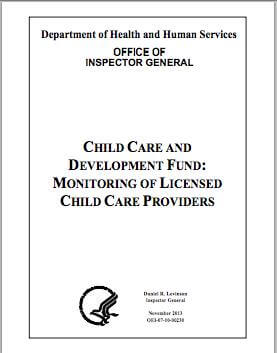 The bi-partisan Strong Start for America’s Children Act of 2013, introduced today by Senator Tom Harkin (D-IA), Congressman George Miller (D-CA), and Congressman Richard Hanna (R-NY), at an event on Capitol Hill sends a signal that the national conversation is just beginning around the importance of early learning. Senator Harkin, Rep. Miller, and Rep. Hanna joined Department of Education Secretary Arne Duncan, Save the Children Ambassador actress Jennifer Garner and D.C. preschool children in a replica of an early learning classroom, and took part in activities and games that accentuate the difference quality early learning activities that begin at birth can make in a child’s development.
The bi-partisan Strong Start for America’s Children Act of 2013, introduced today by Senator Tom Harkin (D-IA), Congressman George Miller (D-CA), and Congressman Richard Hanna (R-NY), at an event on Capitol Hill sends a signal that the national conversation is just beginning around the importance of early learning. Senator Harkin, Rep. Miller, and Rep. Hanna joined Department of Education Secretary Arne Duncan, Save the Children Ambassador actress Jennifer Garner and D.C. preschool children in a replica of an early learning classroom, and took part in activities and games that accentuate the difference quality early learning activities that begin at birth can make in a child’s development.
The legislation is comprised of four sections; Prekindergarten Access, Early Learning Quality Partnerships, Child Care, MIECHV Program.
To help understand how the legislation would impact different areas of the early childhood landscape, we’ll dive deeper into each section and its implications.
Prekindergarten Access
The legislation would fund preschool for 4-year-old children from families earning below 200% of the Federal Poverty Line (FPL), and encourage states to spend their own funds to support preschool for young children with family incomes above that income level.
Some of the highlights include:
- Requiring alignment of early learning standards with the State’s K-12 system that are “developmentally-appropriate, and culturally and linguistically appropriate and address all the domains of school-readiness.”
- Mixed-delivery eligibility for grants to ensure that states have the maximum flexibility in determining how the preschool grants could be administered to best fit their communities.
- Requiring establishment of a State Early Childhood Education and Care Council, where it doesn’t currently exist
- Improving coordination and participation with other federally-funded early childhood programs including, CCDBG, IDEA part C, and MIECHV.
- Implementing performance measures and targets designed to increase school readiness, quality programs available, and children in those programs.
- 10-year Match requirement from states, transitioning from 10% in the first year, to an equal share of the federal amount in the program’s 10th year.
- Preschool Development Grants – For states not currently eligible for the formulaic preschool grants (described above), states could receive grants to help increase their ability to build the infrastructure and workforce and instill quality measures necessary to qualify for the federal formulaic prekindergarten grants in future years.
- The Department of Health and Human Services would be tasked with developing a process for converting Head Start programs (that currently serve 4-year olds) to Early Head Start programs serving 3-year olds and infants/toddlers.
Early Learning Quality Partnerships
The legislation would fund the establishment and/or expansion of partnerships between Early Head Start programs and child care providers to help raise the quality of “coordinated, comprehensive services for infants and toddlers and children through age 3.”
Some of the highlights include:
- $1.4 billion in competitive grants ($1,430,376,000 to be exact) to Early Head Start programs to partner with center-based or family child care programs, particularly those that receive federal support through CCDBG and agree to meet Early Head Start program performance standards.
- Priority of grants given to applicants that create “strong” alignment with MIECHV, CCDBG, and state-funded programs to develop comprehensive birth-to-school services for families.
- Early Head Start programs receiving grants under this initiative would enter into a “contractual relationship” with child care providers to:
- Expand the child care providers programs through financial support
- Provide training, technical assistance, and support to provider to meet higher quality measures
- Blend funds with CCDBG to develop “high-quality child care, for a full-day” that meets the Early Head Start standards.
Child Care
The legislation would fund the establishment of a reserve fund to encourage activities to improve the quality of child care nationwide. Additionally, the bill would seek to implement further measures to improve continuity of care for families receiving federal child care assistance.
Some of the highlights include:
- Creation of a $100 million reserve fund that would set-aside funds to go towards competitive grants to states to undertake activities designed to the improve the quality of child care through projects, including, but not limited to:
- Supporting training, education, and other professional development activities for child care staff
- Providing technical assistance to help providers come into compliance with licensing measures
- Providing incentives for the child care workforce to seek further credentialing and/or degree attainment
- Helping programs meeting health and safety standards
- Helping programs develop and implement nutrition, physical activity, and/or obesity prevention programs.
- Priority for grants to high-poverty areas, defined as “areas with significant concentrations of poverty and unemployment and that lack access to high-quality child care.”
- Establishment/Implementation/Expansion of pilot projects to support the needs of low-income families.
Maternal, Infant, and Early Childhood Home Visiting Program
The legislation would provide a “Sense of the Senate” and a “Sense of the House of the Representatives” that the MIECHV program has shown significant progress in the improving the development of children from low-income families. A “Sense of the Congress (or of each chamber)” is simply the formal expression of opinion about subjects of current national interest. In other words, while the rest of the legislation would develop, implement, or expand existing programs, this section would clarify the belief of the respective chambers that the MIECHV program has seen significant success in its work and that the chambers believe that Congress should continue to provide the resources necessary for the program.






